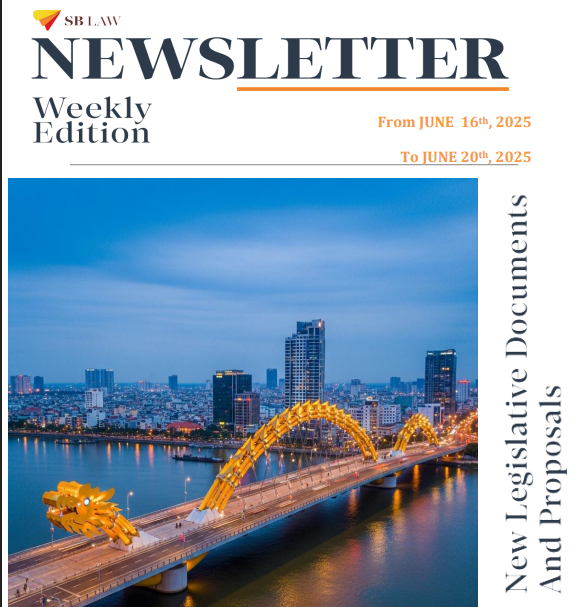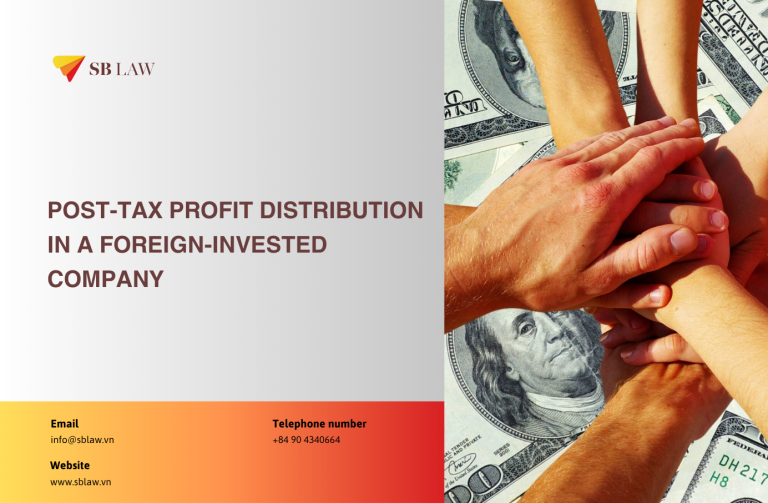
Dear Attorney Ha,
Currently, reporter from thitruong24h.vtv.vn is conducting a series of reports on online fraud. One notable case involves Mr. Pips, who defrauded participants in a virtual stock exchange, illigally profiting over 5,200. Additionally, various other forms of online fraud are prevalent on social media platforms. Could you share your insights on this issue
1. Could you explain the common types of online fraud today?
Response:
In the era of digital transformation, online fraud has become increasingly diverse and sophisticated, blending both old and new tactics, making it difficult for the general public to recognize. According to the Government Newspaper, for every 220 smartphone users, one falls victim to fraud, with estimated losses in 2024 reaching nearly VND 19 trillion. Recently, the Department of Cybersecurity under the Ministry of Information and Communications issued warnings about several common types of online fraud.
First, fraud through virtual financial trading platforms. This is one of the most prevalent and dangerous forms of fraud. In the case of Mr. Pips, scammers created unlicensed cryptocurrency exchanges, international stock trading platforms, or financial investment channels, promoting them with promises of "super profits." Exploiting people's greed, they lure participants with attractive commissions for referring new investors. Once a significant number of participants join, the scammers suddenly shut down the system or sever all communication, seizing the entire invested capital. This not only causes substantial financial loss to victims but also undermines trust in legitimate financial markets.
Second, fraud via social media platforms such as Facebook, Zalo, and Instagram. These platforms have become a fertile ground for fraudulent activities. Scammers often impersonate relatives, friends, or even celebrities to gain victims’ trust. They create scenarios such as urgent loan requests, mistaken bank transfers, or charity fundraising appeals to manipulate victims' emotions. Once they obtain the money, they immediately deactivate their accounts or cut off contact, making it difficult for victims to track them down.
Another common method is phishing through fake websites. This form of fraud has become increasingly sophisticated, with counterfeit websites mimicking banks, government agencies, or well-known brands. Scammers send emails or links that closely resemble official sites, tricking users into providing personal information such as account details, passwords, and OTP codes. Once the victim enters this data, the fraudsters exploit it to steal their assets. This type of fraud is particularly damaging and difficult to detect without careful vigilance.
Additionally, one of the most widespread scams in Vietnam in recent years is fraudulent pyramid schemes. While multi-level marketing (MLM) itself is not inherently illegal, fraudsters have manipulated this model into a high-risk scam. These fraudulent schemes typically appear as "super-profitable" investment projects in sectors such as real estate, cryptocurrency, or even international investment funds. Participants are encouraged to deposit money and recruit new members to earn commissions. However, these are essentially Ponzi schemes that rely on continuous capital inflow from new investors. When recruitment slows down, the scheme collapses, and all invested funds are seized by those at the top.
Given these alarming trends, individuals must enhance their awareness and exercise caution in financial transactions. Best practices include avoiding the disclosure of personal information on unverified websites, thoroughly verifying the identity of those requesting financial transactions, and promptly reporting any suspicious activities to the authorities.
2. What legal regulations are applied to handle online fraud?
Answer:
Firstly, administrative sanctions
Clause 1 Article 15 of Decree No. 144/2021/ND-CP stipulates a fine ranging from VND 2,000,000 to VND 3,000,000 for acts of deception or absconding to appropriate assets, or failing to return borrowed, leased, or contractually received assets despite having the means and ability to do so.
Additionally, supplementary penalties may include the confiscation of material evidence and administrative violation tools related to the offense.
Secondly, criminal liability
Pursuant to the 2015 Penal Code (as amended and supplemented in 2017):
Article 174 of the Penal Code provides penalties for Fraudulent Appropriation of Property. Depending on the amount of appropriated assets, different levels of punishment apply, with the most severe penalty being life imprisonment. This provision applies to fraudulent activities intended to misappropriate another person’s assets. Online fraud, such as using the internet and social media applications for financial scams, may be subject to criminal prosecution under this Article.
In cases where fraud is committed through computer networks, telecommunications networks, or electronic means, offenders may be prosecuted for the crime of Using Computer Networks, Telecommunications Networks, or Electronic Means to Commit Property Appropriation, as stipulated in Article 290 of the Penal Code, with the maximum penalty being 20 years of imprisonment.

3. What should online fraud victims do upon discovering that they have been scammed?
Answer:
Step 1: The victim should submit a written complaint to the investigative authorities, accompanied by evidence proving financial loss. The complaint should clearly state the amount of money involved, the fraudulent act, the time of occurrence, relevant details, and the platform or entity involved. Evidence may include messages, money transfer receipts (photocopies or certified documents) to support the case before the competent authorities.
Step 2: The victims will be officially recognized as such, allowing them to participate in legal proceedings (e.g., providing testimony, attending court hearings).
Step 3: After the appellate judgment takes effect, the victim must submit an enforcement request along with the court judgment to the Civil Judgment Enforcement Department to facilitate the recovery of misappropriated funds.
4. Can you share some notable cases of successfully prosecuted online fraud?
Answer:
Online fraud has increasingly become a complex issue in modern society, as criminals exploit technological advancements and the internet to commit fraudulent acts and misappropriate assets from the public. However, thanks to the proactive involvement of law enforcement agencies and heightened public awareness, numerous online fraud cases have been successfully investigated and prosecuted.
A notable case from early 2024 involved the dismantling of an online "financial investment" fraud network in Đắk Lắk. In January 2024, the Criminal Police Department of Đắk Lắk Province Police successfully uncovered and dismantled an online fraud scheme operated via social media. The perpetrators lured victims into so-called "financial investment" opportunities by promising high returns. They created fake platforms and provided misleading information to attract investors. Once victims deposited their funds, the fraudsters either failed to return the money or absconded. Investigations revealed that over 100 victims were defrauded, with a total amount of tens of billions of VND misappropriated. The police collected evidence, arrested the masterminds, and widely publicized this fraudulent scheme to warn the public. Authorities have also advised individuals against engaging in unclear online investment schemes.
Another case involved a fraudulent online pharmaceutical sales network that scammed over 7,000 victims. On October 7, 2023, the Bac Ninh Provincial Police dismantled an online fraud ring that impersonated major hospitals such as Military Central Hospital 108 and Military Medical Hospital 103 to sell counterfeit and unverified medicines. The fraudsters created fake fan pages and websites to promote fraudulent medical products, persuading individuals to place orders. Victims were required to pay in advance, but once payments were made, the perpetrators either failed to deliver any products or sent substandard items. Police conducted investigations, raided relevant locations, and seized substantial evidence of fraudulent activities. Over 7,000 victims suffered losses, with the total fraud amounting to approximately 50 billion VND. The fraudulent network was dismantled, and the ringleaders were apprehended.
Another significant case occurred on December 27, 2023, involving the dismantling of a large-scale online gambling and fraud syndicate valued at over 6,000 billion VND. The Hung Yen Provincial Police uncovered a massive online fraud network involved in illegal gambling, financial scams, and cryptocurrency transactions. The perpetrators used advanced technology to deceive victims, embezzling over 6,000 billion VND through virtual transactions and electronic payments. Law enforcement agencies collaborated with relevant technical units to trace and apprehend the perpetrators. Following their arrests, the masterminds were prosecuted, and some victims successfully recovered part of their defrauded funds.
These cases not only illustrate the seriousness of online fraud but also underscore the determination of law enforcement agencies in protecting public interests. However, individuals must remain vigilant and equip themselves with fundamental cybersecurity knowledge to prevent fraud and safeguard their assets. Authorities also urge the public to promptly report suspicious activities and refrain from participating in unverified online investment or transaction schemes.

5. How to determine whether an online transaction is safe and legal?
Answer:
To determine whether an online transaction is safe and legal, it is crucial to first understand common fraud schemes and how to prevent them. Below are key factors to consider when assessing the legitimacy of an online transaction:
First, bewaring of fraudulent virtual financial platforms: Fraudsters often create fake trading platforms, promising high returns with no risk, only to deceive users into depositing money. They may require investors to "upgrade accounts" or pay additional fees to "increase investment opportunities." To ensure safety, verify whether the platform is licensed by official authorities such as the State Bank of Vietnam or the Securities Commission. If the legal entity's information is unclear or the platform lacks a verifiable contact address, it is best to avoid engaging with it.
Second, verifying the legality of multi-level marketing (MLM) models: A legitimate MLM business must be based on tangible products or services. However, fraudulent MLM schemes focus on recruiting new members and require upfront payments to generate commissions. If you are invited to join a system where income is primarily derived from recruiting others, it may be a scam. Always request to see business licenses and verify the company’s details through official regulatory agencies. Legitimate businesses are transparent and do not force participants to pay upfront fees.
Third, identify social media and fake website scams: Fraudsters increasingly use social media impersonation to deceive victims by posing as family members or government agencies and requesting money transfers. The golden rule in such cases is not to act hastily. Always verify the information directly by contacting the alleged sender or reporting the incident to relevant authorities before taking any action. Regarding fraudulent websites, check for domain name accuracy (beware of misspellings mimicking legitimate sites) and ensure that the site uses "https://" for security. Legitimate websites clearly provide contact details and transparent transaction policies.
6. What measures can individuals take to protect themselves from online fraud?
Answer:
First measure is never providing personal information in any form. Online fraud schemes have become increasingly sophisticated, often involving enticements or requests for personal data registration such as ID numbers, full names, phone numbers, and addresses on unfamiliar websites. These tactics are primarily aimed at illegally collecting personal data for fraudulent purposes. Individuals should always verify the legitimacy of a website before providing any personal information, particularly credit card details, passwords, or banking information. Ensure that the website is official and uses a secure connection (https://).
Second measure is exercising caution with unfamiliar emails and messages: Avoid clicking on links, opening attachments, or downloading software from unknown sources. Fraudsters often impersonate banks or government agencies through emails and messages as part of their scams. Individuals should verify the authenticity of the sender before responding to any suspicious correspondence.
Third measure is not sharing passwords or OTP Codes, even with family members: One of the most common fraud tactics involves OTP verification codes used for account logins and financial transactions. To enhance security, individuals should use antivirus software and regularly update their operating system, browsers, and applications to patch security vulnerabilities.
Fourth measure is wary of unexpected notifications regarding prizes, payments, or money transfers: If individuals receive messages claiming they have won a prize, need to make a payment, or must transfer funds, they should first verify the information through official government agencies or the relevant organization’s website. Be particularly cautious of online shopping scams—many fraudulent websites offer low-priced products to lure buyers, only to fail to deliver or send substandard goods. Always check customer reviews and feedback before making a purchase.
Fifth measure is using secure payment methods: Avoid direct money transfers or payments through unsecured methods. Instead, opt for reputable payment services or e-wallets with strong security protocols. Additionally, individuals should change their passwords regularly, use strong passwords, and monitor financial transactions. If any suspicious transactions are detected, they should immediately report them to the bank to lock the account or card.
7. What should a person do if they are a victim of online fraud but lack sufficient evidence?
Answer:
First, report the incident to authorities immediately: Victims should promptly contact law enforcement, even if they do not have complete evidence. Since consumers are generally at a disadvantage, they should not delay reporting the fraud to maximize their legal protection. Victims can report the case to the Economic Police Department or the High-Tech Crime Prevention Unit in their local jurisdiction. When filing a report, they should provide detailed information including the time of the incident, transaction amount, transaction content, and details of the fraudster. Additionally, victims can use the National Cybersecurity Monitoring Center’s online portal or call the hotline 156 to report cyber fraud.
Second, continue collecting additional evidence: Victims should make every effort to gather and preserve relevant evidence, including: Screenshots of all messages, emails, and contact information related to the fraud; Transaction details such as payment receipts, recipient account numbers, or e-wallet information…
Third, seek legal assistance: Consulting an attorney specializing in cybercrime and fraud can help victims understand how to collect evidence, the legal reporting process, and the steps required for filing criminal complaints. A lawyer can also assist in pursuing potential financial recovery through legal channels.
Fourth, request support from third parties: If possible, victims should contact third-party service providers, including: Payment service providers to request transaction verification, Social media platforms and email providers to confirm the fraudster’s identity and fraudulent activity.
8. Is the timing of reporting and evidence collection important in fraud cases? If so, why?
Answer:
First, timely reporting helps prevent further illegal transactions, promptly reporting fraud can assist law enforcement agencies and banks in freezing the fraudster’s accounts, thereby preventing them from scamming additional victims.
Second, The earlier the evidence is collected, the more reliable and admissible it becomes in proving the fraudulent activity. Given the nature of digital data, which can be easily deleted or altered, evidence such as messages, transaction history, and fraudsters' account details may disappear over time. Rapid reporting and evidence collection also facilitate the tracking of fraudulent transactions, leading to more effective evidence retrieval.
Thus, the timing of reporting and evidence collection plays a crucial role in protecting victims from identity fraud. Acting quickly can prevent fraudsters from misusing victims’ personal data for illegal activities.
9. What are the legal perspectives on the evolution and transformation of online fraud in the future?
Answer:
With the advancement of technology and the internet, while many benefits arise, these developments also create opportunities for online fraud to evolve.
Currently, online fraud tactics are becoming increasingly sophisticated. The use of artificial intelligence (AI) and deepfake technology allows fraudsters to generate fake documents, voices, and videos that are difficult to detect. AI-powered chatbots can also be deployed in email, social media, or messaging scams to interact with victims more convincingly. In terms of scope, fraudsters do not only target individuals but also businesses and financial institutions through methods such as CEO fraud or supply chain attacks. Vulnerable groups, including the elderly and those unfamiliar with technology, are primary targets. Moreover, fraudsters frequently impersonate family members or friends on social media platforms such as Facebook, Instagram, TikTok, and messaging apps like WhatsApp and Zalo to deceive users into lending money or disclosing personal information. Many fraud schemes exploit victims’ emotions, such as: Fake lottery wins, recruitment scams, and investment frauds, taking advantage of greed, fear, or naivety; Impersonation of government officials, using legal threats to intimidate victims
Notably, fraud is no longer limited to individual perpetrators—it has expanded into large-scale transnational cybercrime networks, orchestrating mass fraud campaigns. Therefore, laws and cybersecurity technologies must continuously evolve to counteract these emerging threats. Additionally, public awareness must be enhanced through education and cybersecurity awareness campaigns.
In conclusion, online fraud is expected to become more complex and diversified in the future. Effectively addressing these threats will require close collaboration between law enforcement agencies, technology service providers, and the public to create a safer online environment.

10. What Is the Role of Government Authorities and Telecom Providers in Combating Online Fraud?
Answer:
In the fight against online fraud, both government authorities and telecom providers play critical yet complementary roles.
- First, the role of government authorities:
Agencies such as the Ministry of Public Security, the Ministry of Information and Communications (MIC), and judicial authorities are responsible for drafting and enforcing legal frameworks to regulate online activities, impose administrative fines, and prosecute cyber fraud crimes. - Authorities like the Cybersecurity Department (MIC) regularly issue alerts on emerging fraud tactics. They also organize educational campaigns to raise public awareness about data protection and online scams.
- Investigating and Prosecuting Cybercrime: Specialized units, such as the Cybersecurity and High-Tech Crime Prevention Department, conduct investigations and crack down on online fraud networks. Given the international nature of cyber fraud, cross-border cooperation has also been strengthened to address transnational fraud cases.
Second, the role of telecom providers:
- Telecom providers, including Viettel, VNPT, and MobiFone, monitor and identify suspicious calls and messages, particularly those impersonating government agencies or banks. They also implement spam message and scam call detection services to protect consumers.
- Developing security technologies: Telecom companies invest in automated filtering systems to block phishing messages, malicious links, and fraudulent websites, based on real-time threat intelligence provided by law enforcement.
- User alerts and guidance:Telecom providers send text message warnings and in-app notifications about new scam tactics, offering guidance on how to identify and avoid online fraud.
- Supporting law enforcement investigations: Telecom companies assist law enforcement by providing transaction data, call logs, and IP addresses, aiding in tracking and identifying fraudsters.
Conclusion, both government authorities and telecom providers have distinct but interconnected roles in combating online fraud. Their cooperation is essential to building a more secure digital environment for individuals and businesses alike.




